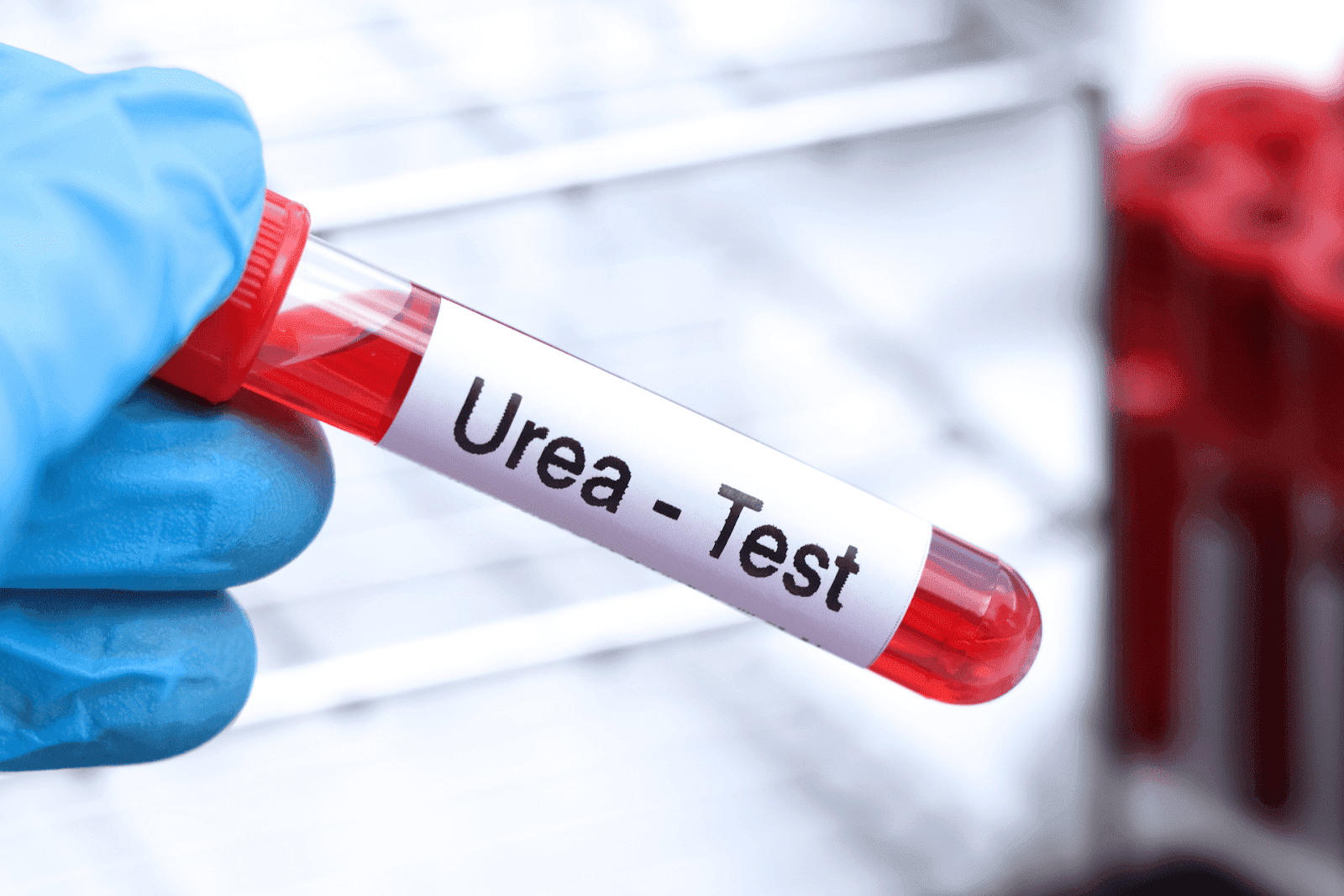Blood urea nitrogen (BUN) is a key marker used by healthcare professionals to assess kidney function and overall metabolic health. Elevated BUN levels can indicate kidney stress or dysfunction, dehydration, or other underlying health issues. Naturally lowering BUN levels is important for maintaining kidney health and preventing complications. This article explores effective, science-backed strategies to reduce BUN levels naturally, empowering you to take control of your health with confidence.
 Understanding BUN and Its Importance
Understanding BUN and Its Importance
BUN measures the amount of nitrogen in your blood that comes from the waste product urea. Urea is formed in the liver when the body breaks down protein and is normally filtered out by the kidneys. When kidneys are not functioning optimally, BUN levels can rise, signaling potential kidney impairment or dehydration.
Normal BUN levels typically range from 7 to 20 mg/dL, but these values can vary slightly depending on the laboratory and individual factors. Elevated BUN levels may be caused by kidney disease, high-protein diets, dehydration, or other underlying medical conditions. Understanding the root cause is essential for effective management.
Why Managing BUN Levels Matters
High BUN levels can indicate that your kidneys are under stress or not filtering waste efficiently. Over time, this can lead to chronic kidney disease or exacerbate existing conditions. Keeping BUN levels within a healthy range supports kidney function and overall metabolic balance. Early intervention through lifestyle changes can prevent progression and improve quality of life.
Moreover, monitoring BUN levels can provide insights into your hydration status. For instance, elevated BUN levels coupled with low urine output may suggest dehydration, prompting the need for increased fluid intake. On the other hand, a sudden spike in BUN levels could indicate acute kidney injury, which requires immediate medical attention. Regular check-ups and blood tests can help catch these changes early, allowing for timely interventions that can significantly impact long-term health outcomes.
In addition to hydration and kidney health, BUN levels can also be influenced by dietary choices. A diet high in protein, while beneficial for muscle growth and repair, can lead to increased urea production, subsequently raising BUN levels. Therefore, individuals, especially those with pre-existing kidney conditions, should consider consulting a healthcare professional or a nutritionist to tailor their diets appropriately. This holistic approach not only aids in managing BUN levels but also contributes to overall well-being, ensuring that the body functions optimally under varying circumstances.
Dietary Changes to Lower BUN Levels Naturally
Diet plays a crucial role in managing BUN levels. Since urea is a byproduct of protein metabolism, adjusting your protein intake and focusing on kidney-friendly foods can make a significant difference.
Moderate Protein Intake
Consuming excessive protein, especially from animal sources, can increase BUN levels because the body produces more urea during protein breakdown. Reducing protein intake to moderate levels helps lower the nitrogen load on the kidneys. Opt for high-quality protein sources such as lean poultry, fish, and plant-based proteins like beans and lentils, which are easier on the kidneys. Additionally, incorporating a variety of protein sources can ensure you receive a balanced array of amino acids while minimizing the strain on your renal system. For instance, consider integrating quinoa, a complete protein, into your meals, or utilizing tofu as a versatile meat substitute that provides essential nutrients without overwhelming your kidneys.
Stay Hydrated
Dehydration is a common cause of elevated BUN levels. When the body lacks sufficient water, the kidneys conserve fluids, concentrating waste products like urea in the blood. Drinking adequate water throughout the day helps dilute BUN and supports kidney filtration. Aim for at least 8 cups of water daily, or more if you are physically active or live in a hot climate. It's also beneficial to monitor your hydration status by observing the color of your urine; a pale yellow indicates adequate hydration, while a darker color may suggest a need for more fluids. In addition to plain water, consider incorporating hydrating foods such as cucumbers, watermelon, and oranges into your diet, which can contribute to your overall fluid intake while providing essential vitamins and minerals.
Incorporate Kidney-Friendly Foods
Certain foods can support kidney health and help reduce BUN levels. These include:
Berries: Rich in antioxidants, they help reduce inflammation and oxidative stress.
Leafy Greens: Spinach, kale, and Swiss chard provide essential vitamins and minerals.
Garlic: Known for its anti-inflammatory properties.
Red Bell Peppers: Low in potassium but high in vitamins A and C, beneficial for kidney health.
Limiting foods high in sodium and phosphorus is also important, as excess amounts can burden the kidneys. Furthermore, incorporating omega-3 fatty acids found in fatty fish like salmon and walnuts can provide anti-inflammatory benefits that may enhance kidney function. These healthy fats not only support cardiovascular health but also play a role in reducing the risk of kidney disease. As you make these dietary adjustments, consider consulting with a healthcare professional or a registered dietitian who can provide personalized guidance tailored to your specific health needs and help you create a sustainable eating plan that promotes kidney health.
Lifestyle Habits to Support Kidney Health
Beyond diet, lifestyle choices significantly impact BUN levels and kidney function. Adopting healthy habits can enhance your body's ability to maintain balanced BUN levels naturally.
Regular Physical Activity
Engaging in regular exercise helps improve circulation and supports overall metabolic health. Moderate physical activity, such as walking, cycling, or swimming, can help maintain healthy blood flow to the kidneys and reduce stress on these vital organs. However, avoid excessive or strenuous exercise without proper hydration, as this can temporarily increase BUN levels.
Avoid Tobacco and Limit Alcohol
Smoking and excessive alcohol consumption can impair kidney function and exacerbate elevated BUN levels. Quitting smoking and moderating alcohol intake are essential steps to protect your kidneys and overall health.
Manage Stress
Chronic stress can negatively affect your body's systems, including kidney function. Incorporate stress-reducing practices such as meditation, deep breathing exercises, or yoga to support your body's natural balance.
When to Seek Medical Advice and How Telehealth Can Help
While natural methods can effectively support kidney health and lower BUN levels, it is crucial to consult a healthcare professional if you notice persistently high BUN or experience symptoms such as fatigue, swelling, or changes in urination. Early diagnosis and treatment can prevent complications.
For convenient and affordable access to medical advice, consider using telehealth services like Doctronic.ai. Doctronic offers 24/7 telehealth video visits with licensed doctors across all 50 states for under $40. Their AI-powered platform provides fast, personalized medical insights drawing on the latest peer-reviewed research, making it an excellent resource for managing kidney health and BUN levels.
With over 10 million users, Doctronic combines advanced AI technology with human medical expertise to deliver quality care quickly and conveniently. Whether you need a second opinion, treatment recommendations, or ongoing support, Doctronic is a trusted partner in your health journey.
Additional Tips for Maintaining Healthy BUN Levels
Monitor Your Medications
Certain medications can affect kidney function and BUN levels. Always inform your healthcare provider about all drugs and supplements you are taking. Never adjust or stop medications without professional guidance.
Regular Health Screenings
Routine blood tests and kidney function assessments help track BUN levels and overall kidney health. Early detection of any abnormalities allows for timely intervention.
Maintain a Healthy Weight
Excess weight can strain the kidneys and increase the risk of conditions that elevate BUN levels, such as diabetes and hypertension. A balanced diet combined with regular exercise supports healthy weight management.
 Proactive Steps for Healthy BUN Levels
Proactive Steps for Healthy BUN Levels
Lowering BUN levels naturally involves a comprehensive approach focusing on diet, hydration, lifestyle habits, and regular medical monitoring. Moderating protein intake, staying well-hydrated, and incorporating kidney-friendly foods are foundational steps. Supporting these with regular exercise, avoiding harmful substances, and managing stress further enhances kidney health.
When in doubt or if you experience persistent symptoms, leveraging telehealth platforms like Doctronic.ai can provide quick, expert medical advice from the comfort of your home. This AI-powered service ensures you receive the most modern and personalized care available, helping you maintain optimal kidney function and overall wellness.
Taking proactive steps today can help you maintain healthy BUN levels and protect your kidneys for years to come.
Experience Personalized Kidney Care with Doctronic
Ready to take the next step in managing your BUN levels and kidney health? Doctronic, the #1 AI Doctor, offers you a unique opportunity to receive free AI doctor visits. Our advanced AI synthesizes the latest medical research to provide you with answers and treatment recommendations tailored just for you. And if you need more, our telehealth video visits connect you with our doctors anytime, anywhere, for less than $40. With over 10 million satisfied users, Doctronic is changing the face of primary care. Skip the line. Talk to an AI Doctor Now, for free.



 Understanding BUN and Its Importance
Understanding BUN and Its Importance Proactive Steps for Healthy BUN Levels
Proactive Steps for Healthy BUN Levels